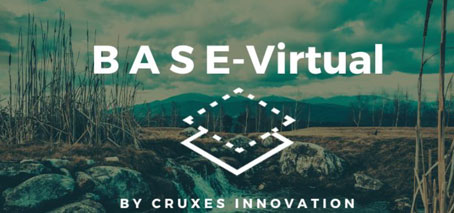- Who would be interested in / benefit from my research?
- How can I pursue high-impact research?
FLEET put nine Centre members through a research-impact training program in 2021 on Cruxes Innovation’s Base program, also gaining a wider appreciation of research translation, how to kick off the industry-engagement process, and how to most effectively ‘sell’ the value of their research, whether in an award application, a grant application, or in a job interview.
The five PhD students and four research fellows developed key research-impact and industry-engagement skills, afterwards sharing the following insights into what they had learned:
- “In order to look for impact in your research, relate it with any real-life problem that any end-user, who might value your research, might be facing and give it the most importance. It’s good to look for assumptions which we are thinking while trying to solve a problem and it’s beneficial if we can divide into 3 main types and rank them.” – Abhay Gupta (UNSW)
- “I’ve begun to consider how different capabilities can be used for a variety of applications. I’ve found it difficult to come up with fresh ideas that I haven’t heard before, especially around electronics (because condensed matter physics usually is motivated by such research). Recognizing the levels of additional skills I have acquired that can be broadly applied (data), technology related (nanofabrication) and knowledge specific (PhD topic – topological insulators, 2D materials) was helpful. ” – Matt Gebert (Monash)
- “I learned how to talk to, or listen to, potential customers. Plan ahead on how to engage with customers.” – Eliezer Estrecho (ANU)
- “I gained more critical thinking of how to analyse the product, to find the correct end user, and the gap between research and market, etc. I learned that when introducing my expertise to people who are outside from research field, I should use concise, general language – avoiding jargon. In research, we usually focus on solving specific technical questions, but in industry we should put more attention towards identifying who can benefit, and what ‘pain point’ can be solved.” – Baoyue Zhang (RMIT)
- “The training motivated my thinking about the broader applications of my research and about the transferability of my research skills. The amount of effort/practice I should be putting into practicing/enhancing my communication skills, particularly to a non-scientific audience.” – Julian Ceddia (Monash)
- “I learned that you have to be absolutely clear about your assumptions. Engage with stakeholders early and determine whether your assumptions are accurate.” – Haydn Adlong (Monash)
The training was part of a focus on industry-relevant training at FLEET in 2021, also seeing saw the introduction of an industry-engagement seminar series. Knowing that most STEM PhD graduates will end up in careers outside academia, FLEET helps students build a diverse skills base to enhance their future job opportunities, ensuring readiness for whichever career path they pursue.
FLEET also participated in Cruxes Innovation’s 2020 program, see their final ‘pitch’ presentations online (FLEET starts 14:00).

